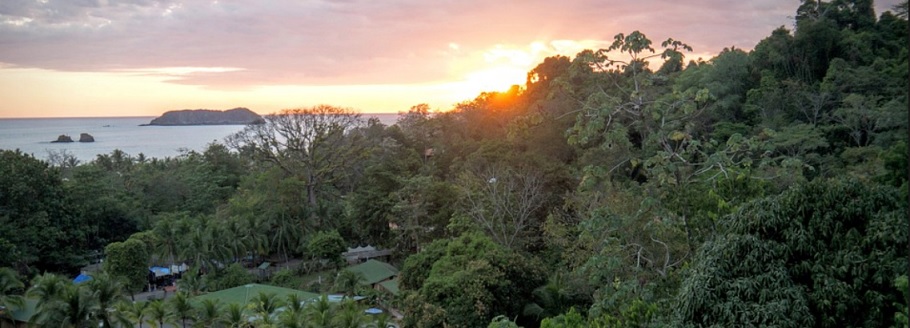Oh! You Don’t Know What You Got…
…till it’s gone…
Ever notice that you’re occasionally unaware of happiness until it’s gone?
“And I thought routine household chores were a major pain, until we had a huge hurricane and flood. Now that I’m rebuilding, I didn’t realize how good I had it before this mess. Didn’t realize how happy I was. What I’d give for those happy days now.”
How can that be? Afterall, happiness is the ultimate goal of all our efforts. We improve our lives, solve problems, and seek love for their immediate benefits and for their contributions to happiness. We never say “Yes, she’s happy, but is she rich?” But we always wonder, “She’s rich, but is she happy?” because we know rich is a means to happiness. Happiness is not a means to something else. Happiness is our ultimate goal.
So how could we fail to recognize the ultimate feeling when we have it? And why does it fade? Evolution provides some answers.
Nature “engineered” us to be able to feel happy. We can’t fly, echolocate, or live in ice water, but we can be happy. And unhappy.
Why feel both? Why not just happy? Wouldn’t that better serve nature’s goal of survival?
Actually both happiness and unhappiness, like pain and pleasure, better serve survival. We need both but, of course, prefer one over the other.
Yes, we’re able to be happy. But we’re “designed” by nature to focus on the negative, at the expense of the positive, because of the negative focus’s survival value. The positive doesn’t usually endanger us like the negative. So happiness can be ignored when we’re in danger.
Nature also “programmed” us to seek more. If one meal satisfied our hunger but not our nutritional needs, we’d starve. And while happiness is a reward, incentive, motivation to lead a happy life, like with hunger, permanent happiness would eliminate the drive to improve life and our survival. So we want more happiness and thus, we may overlook our current happiness in our quest for more.

Our “mores” include the resources necessary for our own and our species’s survival: air, food, water, shelter, security, and connection to others. We also want things that improve the comfort of our life and our sense of self, but are not necessary for survival. Take that Range Rover. Beautiful, superbly engineered, and we look SO GOOD driving it. But it’s way more than we need for reliable transportation. A BeGo can do that. But the Rover makes us feel so good about ourself.
So nature, evolution, it seems put us in conflict with ourselves. We crave and require happiness. But when we get it, we often ignore it or become dissatisfied with that level of happiness.
How can we be happy if we end up being unhappy with the happiness that we have?
Resolving a basic source of our unhappiness, a personal sense of inadequacy, unworthiness, helps a lot. Because that drives much of our craving for more.
No human is anywhere near perfect. Regardless of what was said about Sir Isaac Newton- “nearer to the gods, no man has come”, we are not “gods”. Not even close. But we can learn to feel good enough. And reduce the happiness canceling drive for more.
e….Motions
Remember that both happiness and unhappiness are eMOTIONS-feelings which put us into some necessary “motion”. “Programs” that move us to take survival enhancing actions. Happiness means we’re living a good, overall, life. It “says” to us “keep up the good work”. Unhappiness “says” something’s wrong with how we’re living: “make a change.”
You might argue that rather than “moving” us, unhappiness cripples us, immobilizes us.
How does that help? It doesn’t. We must be careful to distinguish between depression, a mental illness that does paralyze us and unhappiness-which moves us to improve our life.
We’re often unhappy because our conditions change. They’re continuously changing in ways both big and small. So if we hope to base our happiness on circumstances, we’d better prepare to face a lot of unhappiness.
By realizing that happiness and unhappiness are emotional, inner states not states of the world, we see where our focus must lie. Inside. But most of us focus almost exclusively on attaining happiness through external means. Sure, we can’t just feel good about a lack of water. We must HAVE the condition of water. But many conditions are experienced as “unhappy” because of our MINDSET. Our emotions are influenced by conditions MEDIATED by our mindset: by how we tend to see and respond to those conditions.

We Live in Two Worlds
We live in an external, physical, social, objective world and an inner, cognitive/conceptual, personal, subjective world. And we often mistakenly believe that the external one is the key to our happiness.
So we intensely pursue the “good life”: a prestige education leading to a high paying/high status career that provides a magnificient home, a luxury vehicle, and attendance at exclusive parties. Or so the movies tell us about the Western dream life.
But if it’s actually the source of happiness, we must ask why do so many leading such a life engage in drug and alcohol abuse, face criminal investigations, DUI’s, divorces, and bankruptcy? (See “Wolf of Wallstreet”).
And why might some rickshaw puller struggling through the heat and mud and degradation of life in a Mumbai slum, only to return, after a long, hard day, to a home made of plastic sheeting and a dinner of rice and salt, be happy? (See “Happy”).
Maybe happiness is more a matter of our inner emotional life than of our outer world?
And might how we feel about ourselves be a key factor in our happiness? How, afterall, can we be happy with our life if we’re unhappy with the person leading that life? Our life is not something separate and distinct from us. Our life is not like a wardrobe that we can take on and off. It’s something we DO. Something we create by our choices and actions.
If that life’s not going well, or more correctly, when we’re not living our life well, we’re unhappy with our life and it’s “liver”.
Unhappiness Implies We’re Not Enough
Just as we seem to always want more from life, we often want to BE more. Underlying that sense that “we need to BE more” is a BELIEF that we’re NOT ENOUGH.
So how do you see/treat yourself?
Consider a few questions:
Are you self-critical?
What part of yourself are you most critical of?
How severe is your self-criticism?
“I’m occasionally down on myself.
“I’m often harsh with myself.”
“I’m constantly brutal in my self-criticism.”
What benefit do you expect from your self-criticism?
What impact does it actually have?
Does self-criticism really improve who you are? Does it really promote growth and happiness?
Might it be a source of your unhappiness?
Even if you made hugh mistakes, made enormously wrong decisions, taken unquestionably bad actions, (join the crowd) will severe, brutal self-criticism undo any of that?
Will it really move you do do better in the future?
OR might it cause you to overlook your strengths? Might it prevent you from seeing what you’ve got till it’s gone?
Let’s Review…
YES, conditions do matter. Try to be happy when starved, parched, and exposed to searing heat.
And, since conditions continually change, we must continually adapt to restore and retain our happiness. There’s no “one and done” in happiness.
The best adaptation lies within, lies in modifying our mindset about those conditions. Happiness is, afterall, an inner emotional state. Impacted by external circumstances. But best managed by our inner response to the outer-by our mindset. For example, “Yeah, I’m miserable. But I’m still alive.”
Too often, our mindset is the source of our unhappiness. We diminish or eliminate our happiness by focusing on the negative and by wanting more.
Especially when we are negative about ourself. Try to feel happy when you’re negative, rejecting of who you are. When we’re “never good enough”, when we always must be “more” just to be OK, it’s hard to be happy.
Are you into beautiful Costa Rica?
All interesting things you want to know about Costa Rica are right here in our newsletter! Enter your email and press "subscribe" button.


